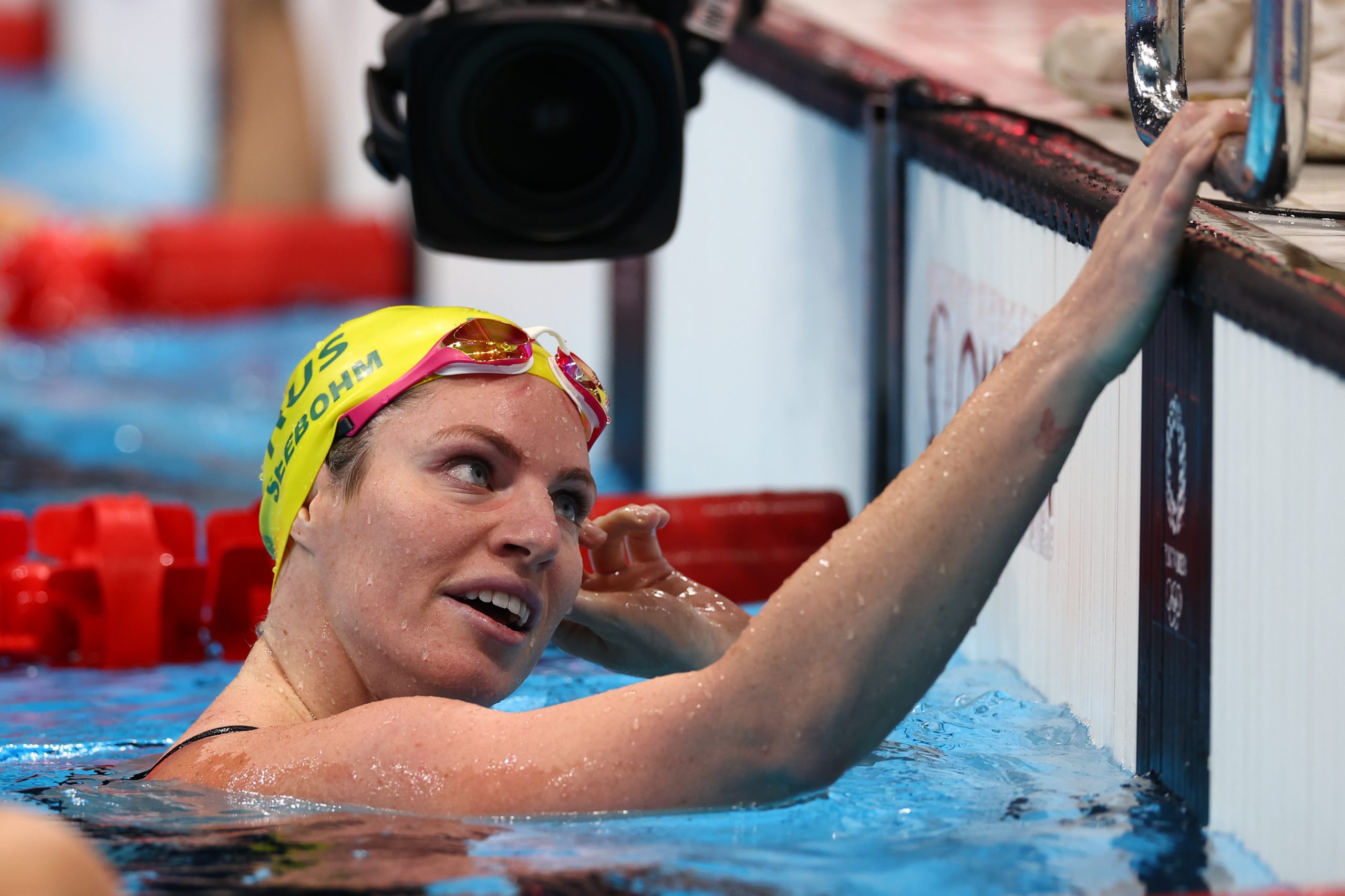Australian gold medalist Seebohm backs FINA decision on transgender swimmers

FILE PHOTO: Tokyo 2020 Olympics – Swimming – Women’s 200m Backstroke – Semifinal 1 – Tokyo Aquatics Centre – Tokyo, Japan – July 30, 2021. Emily Seebohm of Australia reacts after winning REUTERS/Stefan Wermuth
MELBOURNE – Australian Olympic gold medalist Emily Seebohm has welcomed FINA’s decision to restrict the participation of transgender athletes in elite women’s swimming, saying the sport could now move on with certainty.
FINA made the decision at its extraordinary general congress (EGC) on Sunday after members heard a report from a transgender task force comprising leading medical, legal and sports figures.
Article continues after this advertisementFive-time world champion Seebohm, who won a medley relay gold medal for Australia at last year’s Tokyo Games, said the decision would encourage swimmers to stay in the sport.
“I’m finally happy that we have a decision, and we know where the sport’s going and what we’re going to be doing,” the 30-year-old told Sky News Australia on Monday.
“We just didn’t know what was going to happen and when we just don’t know, it’s hard to commit fully to our sport if we have no idea the direction it’s going to go.
Article continues after this advertisement“We can all move on. We can all just go back to the sport that we love … and know that we’re getting in the pool and it’s going to be a fair, level playing field and that’s what we want.”
Athlete Ally, an advocacy group for LGBTQI+ people in sport, said FINA’s decision was “discriminatory” and “harmful”.
“If we truly want to protect women’s sports, we must include all women,” they said in a post on Twitter.
Transgender rights has become a major talking point as sports seek to balance inclusion with fairness.
The debate intensified after University of Pennsylvania swimmer Lia Thomas became the first transgender NCAA champion in Division I history after winning the women’s 500-yard freestyle earlier this year.
FINA said it will create a working group to establish an “open” category for them in some events as part of its new policy.
‘Fair and safe’
Several top Australian female swimmers have raised concerns about competing against transgender athletes.
Four-times Olympic champion Cate Campbell told FINA’s EGC that she supported a restriction on transgender athletes competing in women’s categories and urged people to “listen to the science and experts”.
“Women, who have fought long and hard to be included and seen as equals in sport, can only do so because of the gender category distinction,” Campbell said before delegates voted in favor of the ban.
“To remove that distinction would be to the detriment of female athletes everywhere.”
However, Madeline Groves, a former national champion swimmer who won a butterfly silver medal at the 2016 Rio Games, took exception to Campbell’s comments and was scathing of FINA’s ruling.
“You’re okay with ostracising an already marginalised group? Real accepting,” the 27-year-old Australian said on social media.
“Shame on everyone that supported this discriminatory and unscientific decision.”
Australian women won eight of the country’s nine gold medals at the Tokyo pool.
The Australian Olympic Committee also backed FINA’s decision, saying sports were bound to ensure participation was “fair and safe.”
“While inclusivity must be respected, fairness in competition is a core value of sport,” a spokesman said.
“FINA has made a decision based on the circumstances in the sport of swimming to achieve that balance.”